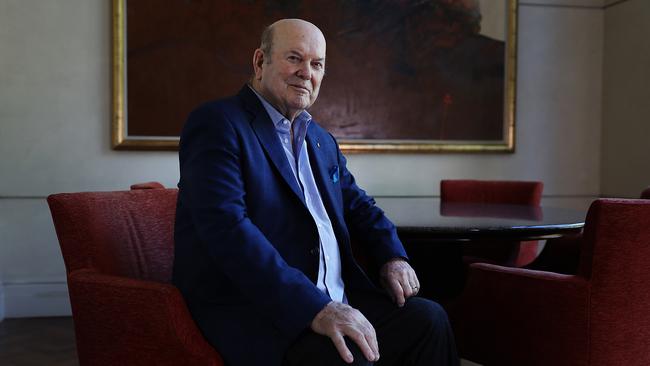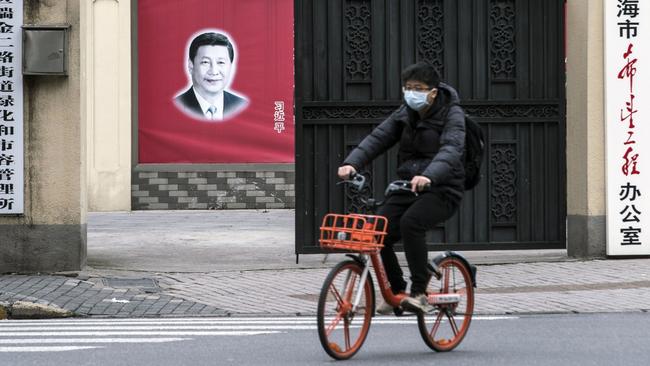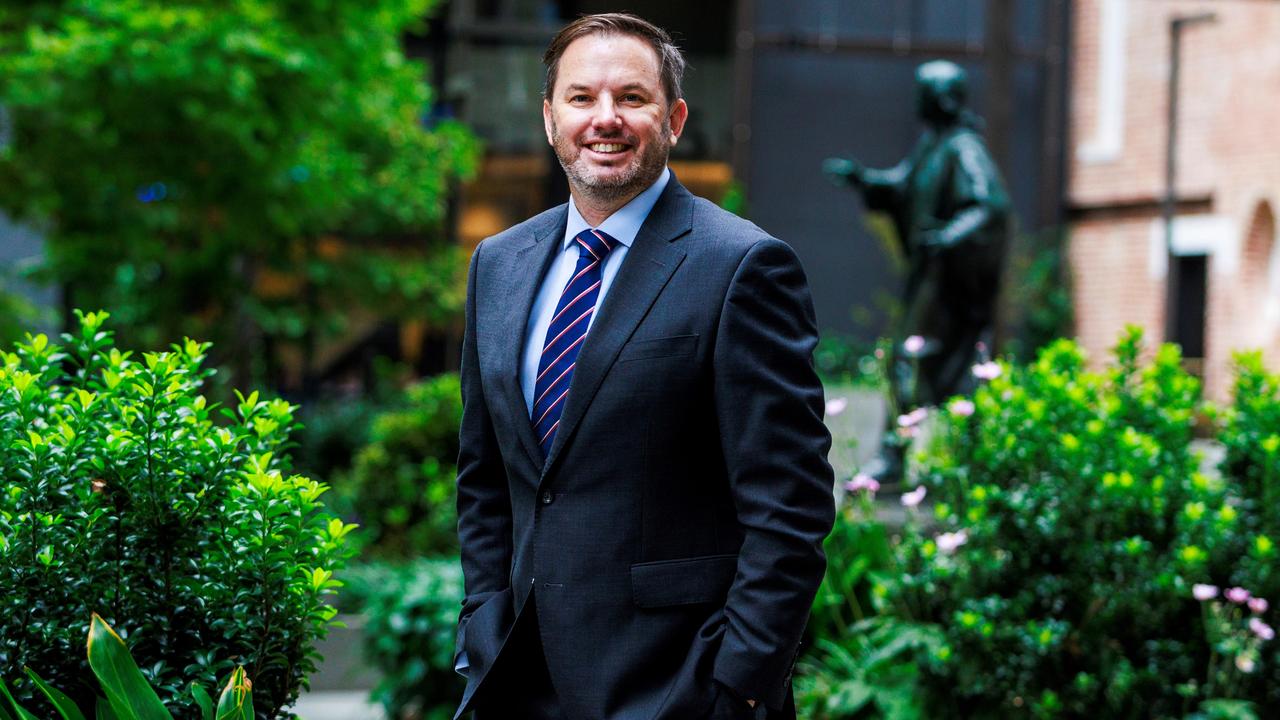‘Quiet diplomacy’ key to improving China relationship: Trevor Rowe
Business is “frustrated and concerned” about Australia’s deteriorating relationship with China, Rothschild Australia’s Trevor Rowe has warned.

The business community is “frustrated and concerned” about Australia’s deteriorating relationship with China, Rothschild Australia senior adviser Trevor Rowe has warned.
“They are asking, ‘how do we get this back on track?’,” he said in an interview with The Australian.
Mr Rowe, the former chair of Rothschild Australia and the United Group and chancellor of Bond University, as well as a former director of the ASX and the Future Fund, said Australia needed to be more careful about the rhetoric it used in its relationship with China.
“We have to learn quiet diplomacy,” he said.
But he said that China’s aggressive “wolf warrior” style of diplomacy was also causing problems for it around the world.
“China has made a mistake which will ultimately hurt them,” he said.
“Its wolf warrior diplomacy is alienating a lot of countries.”
He said Australia needed to work harder to diversify its trade and political relations with other countries in the Asia-Pacific region and not be as dependent on its trade with China.
Mr Rowe was speaking after the federal government rejected a $300m takeover bid by China’s largest construction company, China State Construction and Engineering, for South African-owned Australian builder Probuild — at a time when Beijing has slapped tariffs on imports of Australia wine and barley and found problems with beef, coal and timber exports.
He said Australia had “become blase” about its growing trade ties with China, which had made it too dependent on the country for its exports.
“We were exporting to China, the economy was booming and we were proud of it. We didn’t think we were becoming hostage to one country.
“We didn’t develop an alternative strategy and broaden our base.
“That has all come home to roost and we now have to scramble to diversify our exports.”
Mr Rowe said business was not in a position to change the state of Australian political ties with China.
The future of the relationship would ultimately be decided by the views of Chinese President Xi Jinping and would take some time to repair.
“Business can talk around the edges, but the big picture is not going to change until Xi decides it is going to change,” he said.
“We need to be patient in our relations with China and watch our rhetoric, but there is no way we can compromise our sovereignty. We shouldn’t try to suck up to China.
“We should state our position on Hong Kong and other human rights issues, but we don’t need to be gratuitous.”
At the same time Australia needed to step up ties with other countries in the region.
“I am a great supporter of what (Prime Minister Scott) Morrison is doing to energise ‘the Quad’ (Australia, India, Japan and the US) and develop relations with other countries in the Asia-Pacific,” he said.
Mr Rowe said Australia would be in a better position to improve its relationship with China when it was less dependent economically on the country.
“The state of the relationship won’t change until we become less dependent on China and therefore have more influence and clout,” he said.

He said it was important to try to boost economic ties with India, which now had a middle class of some 300 million people.
“India is another country we really need to focus on as an export market,” he said.
He expected India might be interested in being more active in the Quad given its current border war with China.
Mr Rowe said Australia should get close to the Biden administration at its negotiated a new relationship with Beijing, or risk getting “stranded” by a US-China deal that could harm its interests.
He was concerned that the Biden administration’s new climate envoy, John Kerry, could strike a deal with China on energy and climate change that could also include a trade deal that could disadvantage Australia.
“I am concerned that he (Kerry) will do a climate deal with China and he will add into it something like no further US arms sales to Taiwan, and a trade deal which might mean that China might buy more produce than it would normally buy from the US,” he said. “I am concerned that Australia could get stranded by a Biden initiative of this sort.”
Mr Rowe said the US under president Joe Biden would act in its own interests in negotiating any new deal with China. “We need to stay very close to the Biden administration so that when the deal gets done we don’t get stranded,” he said.
Australia should be looking to “piggy back” off any US-China deal but be wary of being negatively affected.
Mr Rowe said Xi could also be keen to do a deal with the US on climate change and energy.
He said improving the environment in China was a key policy of Xi’s administration and popular with the Chinese people.
He said Xi had been successful in splitting the West with the signing of a new investment deal between China and the European Union ahead of the Biden inauguration.
“If the EU, the US and the rest of the world got together and say this is the way we deal with China, it would have more influence,” he said. “But it has fragmented.”
He said he believed that German chancellor Angela Merkel had been a key driver of the new investment deal between China and the European Union, having developed a dislike for US President Donald Trump. “If it wasn’t for Angela Merkel the deal would never have been signed between the EU and China. She wanted it done before Biden took over.”








To join the conversation, please log in. Don't have an account? Register
Join the conversation, you are commenting as Logout